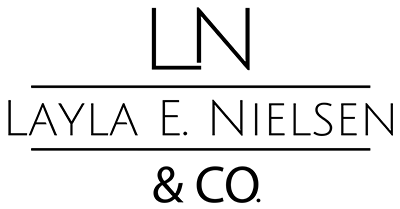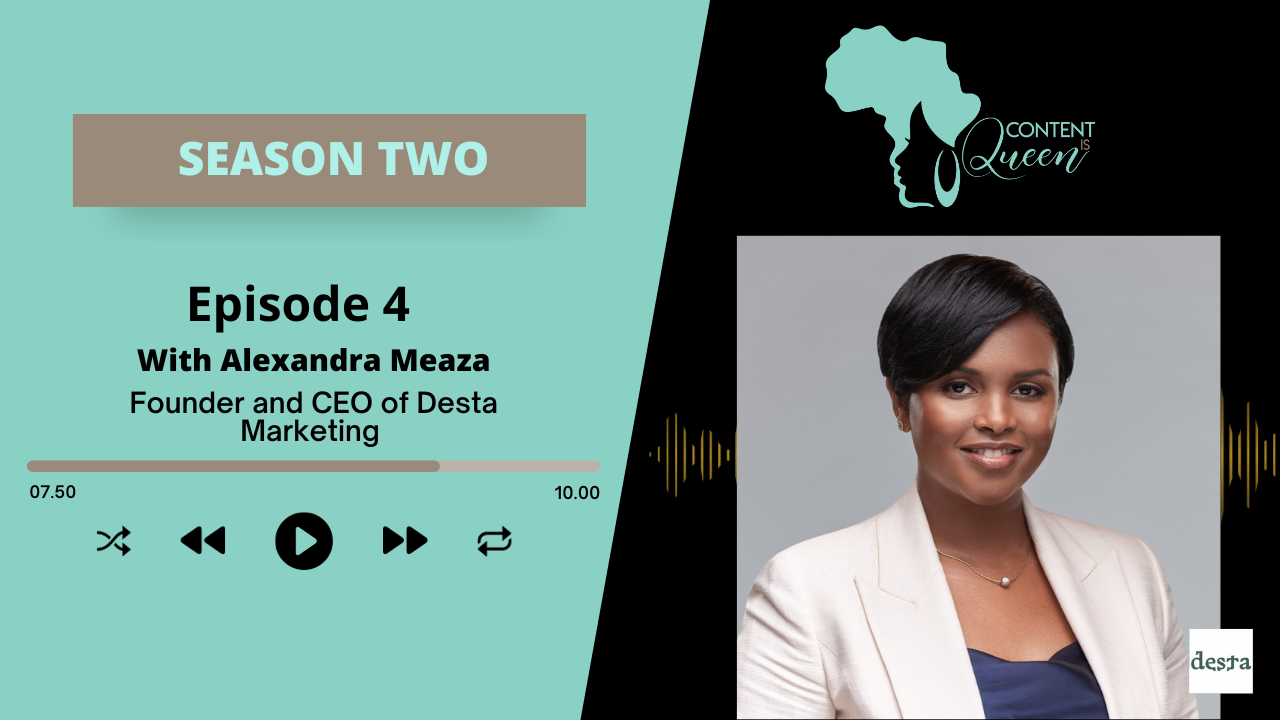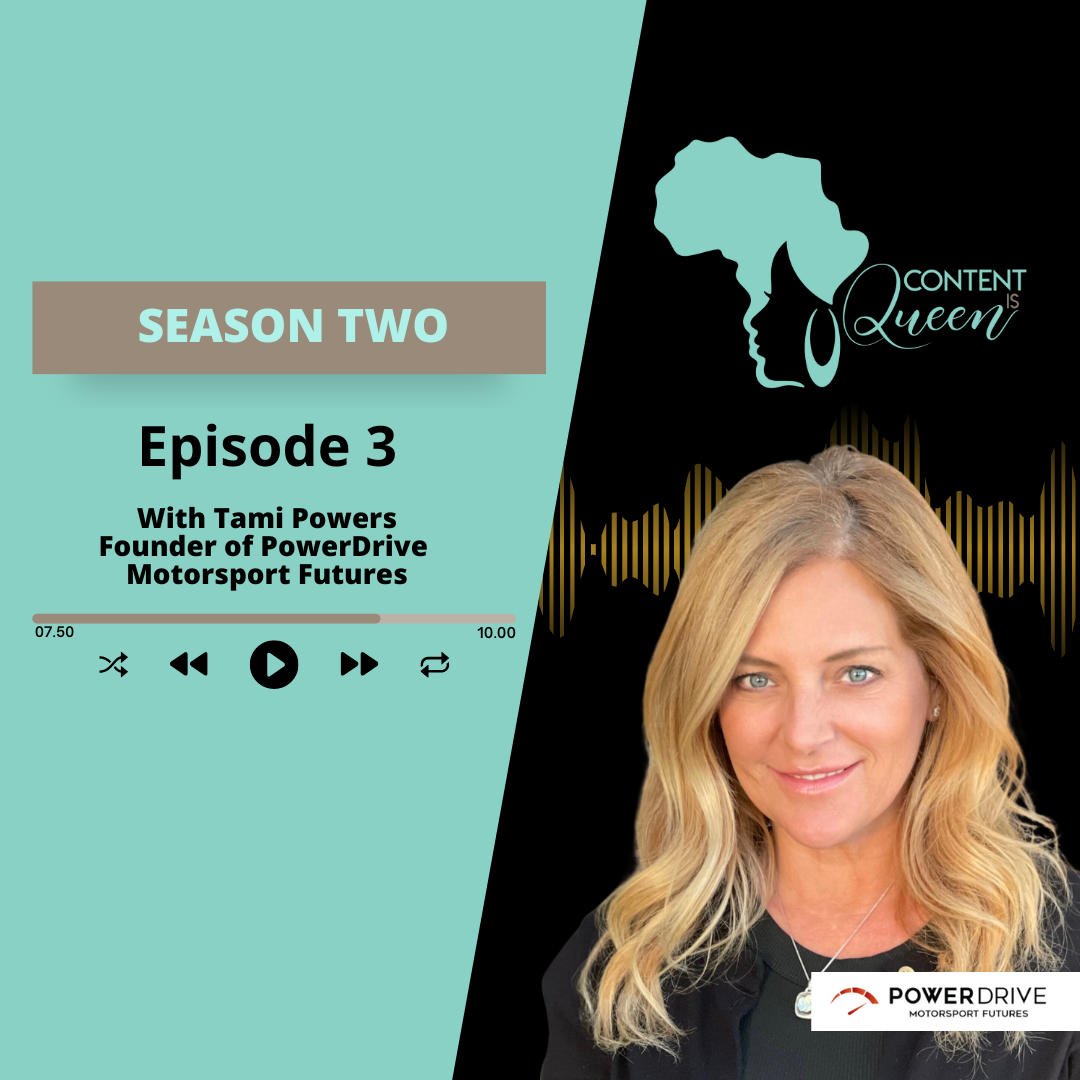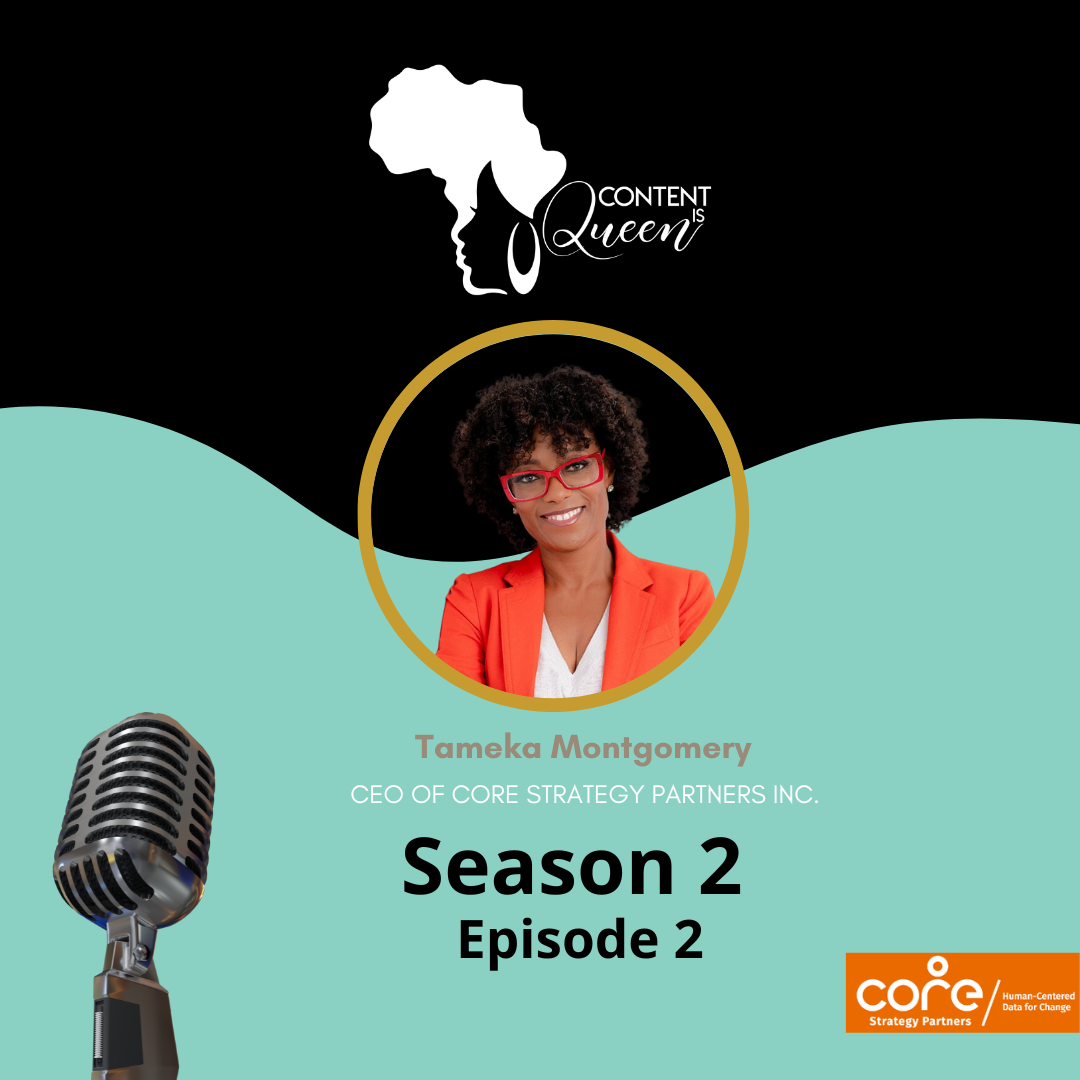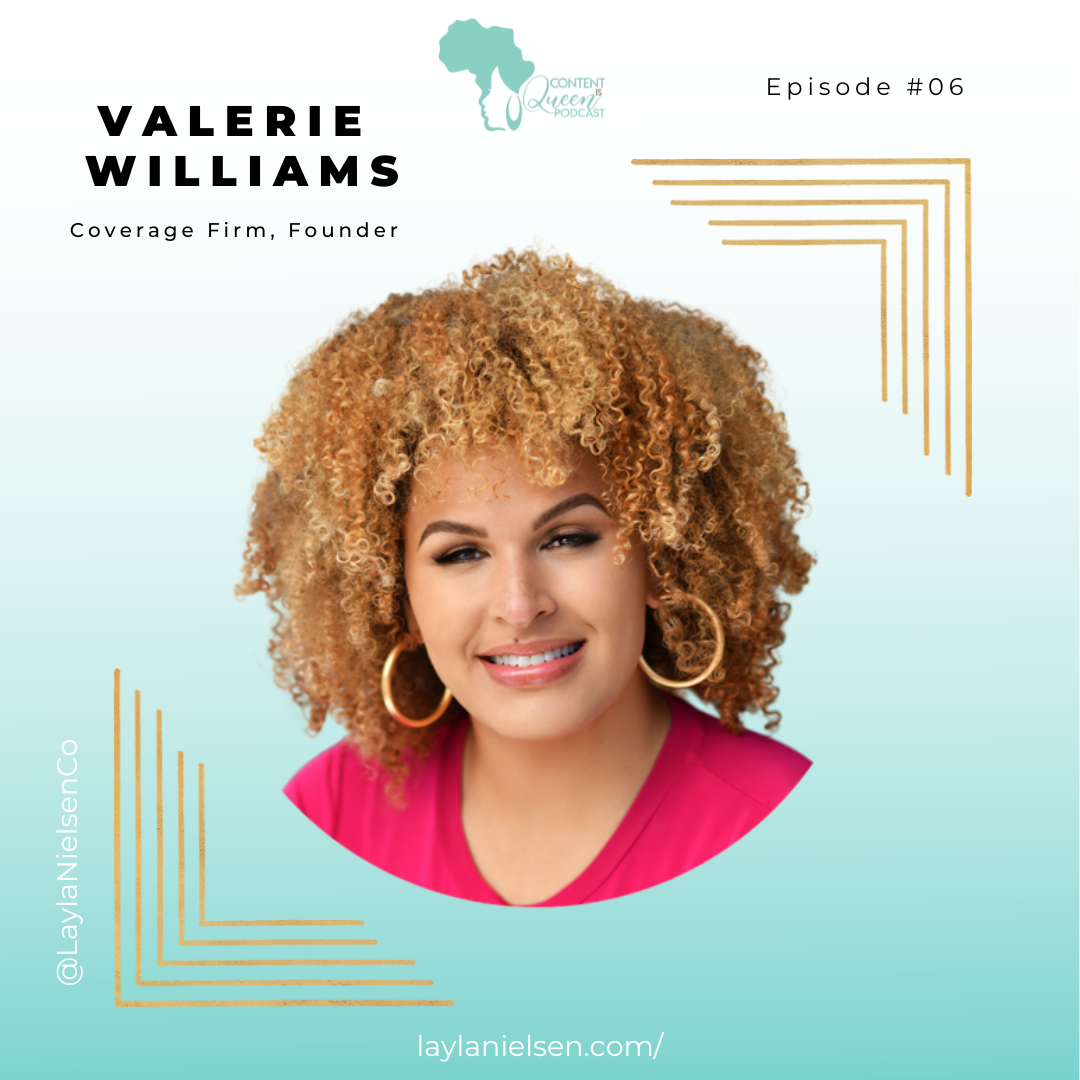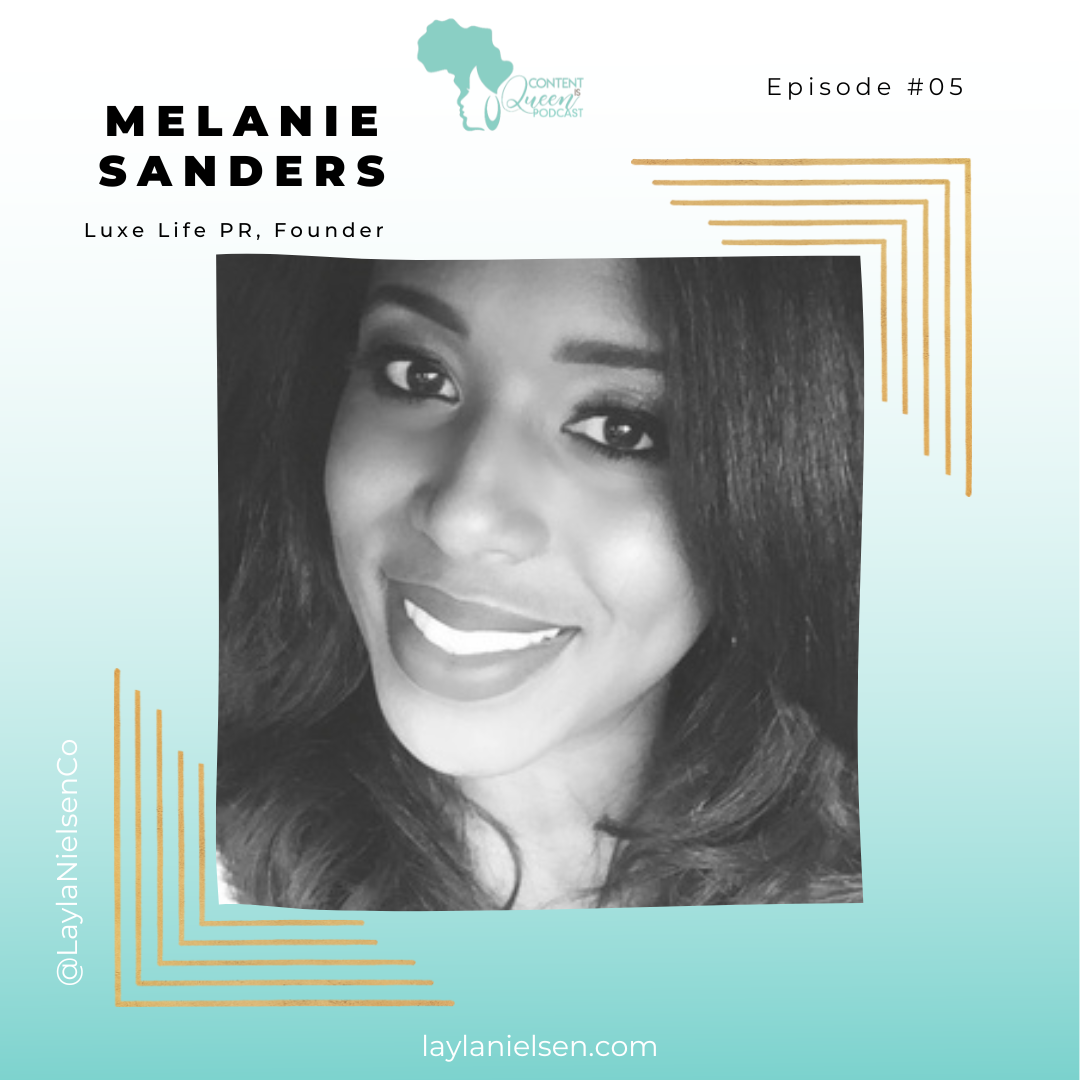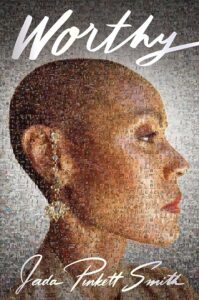
- Podcast
Erica St. Bernard
Layla shares the power of Erica’s work and how she has been able to incorporate her key messages within her own family. Erica shares her incredible story about what inspired her as an educator to become a Licensed Clinical Marriage and Family Therapist.
Isisara Bey:
My name is Isisara Bey and my Content is Queen.
Layla Nielsen:
Welcome. Welcome. Welcome to Content is Queen where we celebrate the women and girls behind the lens and in front of the lens and I am so excited to talk to the one and only Isisara Bey, the creative director of behind march on Washington Film Festival. Welcome.
Isisara Bey:
Thank you so much. I’m happy to be here.
Layla Nielsen:
I am so excited to talk to you one, because we work together. But two, I really want to get into your head. March on Washington is coming up on its 10 year anniversary. And you are the visionary behind the entire festival. Tell me what can the film enthusiast expect from the 10th anniversary of the film festival?
Isisara Bey:
I dream about this at night. I get ideas during the day. It’s so exciting to me. The March on Washington Film Festival just to give a little background is an event that happens every year, although we do do some programming during the year. But it is a major event built around a film festival and then takes a departure from that. Our mission is to unearth the myths told and untold stories of the civil rights movement. Its strategies, its icon and most of all, it’s unknown footsoldiers to link that traditional civil rights movement from the 50s and 60s, to contemporary racial justice movements, here and abroad. And of course, in that inquiry, we also go back in time, as well. So we do it through films, but we also expand we like all of the visual and performing arts. Sometimes you may have somebody do a dance around it. We’ve commissioned that musical performances, we’ve had art exhibits, we’ve had spoken word performances, all of the different ways that people learn things, is how we like to convey it. But we love films, most of all. So I think what people will see virtual on our site, you’ll see a number of different films. A lot of them documentary, some of the narrative will also have some presentations panels, and we’ll have live events as well.
Layla Nielsen:
Even before the 10 years prior to you even coming to the festival. How has the role of women behind the lens and in front of the lens changed?
Isisara Bey:
Well, one thing we have nowadays is many women who are occupying many different positions both behind and in front. Um, I was just speaking with someone today we have so many people now who are playwrights or screenwriters who are also actors and actresses. Who are directing some projects who are producing some projects. So we are taking the subject matter that has been told by others often miss told by others. And we are not only correcting the story, we are telling the story ourselves. And the other way I’ve seen a difference, too is just 10 years ago, there are people who we knew in our racial justice, civil rights history that we discovered in the last few years, we didn’t know half of the story. And then there were many we knew nothing about at all. So there’s been this whole graduation and a surge of both revealing these people who were the backbone of our movement in the 20th century. And those who were pioneers in telling the stories in films, and in plays against great odds. And now there’s a whole new panorama of actors, actresses, playwrights, directors, producers coming to the fore.
Layla Nielsen:
I love that it’s so important because when you think about, you know, our icons, you rarely hear them talk about the wives and the women behind the scenes, pulling it all together. And now that we have platforms like the March on Washington Film Festival, we can celebrate everyone all across the spectrum, who is pushing narratives forward that we need to hear more about.
Isisara Bey:
So one thing I wanted to add to that last year, we showed a documentary and had an event around Pauli Murray, who was a legal scholar, a poet, the first Episcopalian woman priest, she was a pioneer in many areas. She helped start the National Organization for Women. Her writings were the inspiration to Ruth Bader Ginsburg around gender issues, powerful sister, and she said, the civil rights movement was run by women, until a microphone showed up. And the women were pushed to the side by the men. And if you notice, even at the March on Washington, Mahalia Jackson sang, Josephine Baker spoke. I think those are the only two women who participated.
Layla Nielsen:
Wow, I’d never thought that way. Wow, that I mean, that just blew my mind. And that speaks volumes. Because women, you know, as a whole, we are the ones that hold the fort down. We’re the ones who come up and encourage and nurture and ensure that everyone’s fed everyone is taken care of everyone is, you know, where they’re supposed to be. We’re like this natural, you know, where the mothers right? And being in a position where you’re never celebrated, that has to do something to you personally.
Isisara Bey:
So but I think with many of the women of the movement, what was most important to them, was racial justice. They were there for the cause. They were on frontlines and behind the scenes of frontlines. They were in a war and they knew it. Or as Big Daddy Kane says, we work we get the job done.
Layla Nielsen:
Absolutely. Like only a woman can do I love it. So what role do you see March on Washington Film Festival, playing and getting more women both in front of and behind the camera?
Isisara Bey:
Our primary role is to tell the stories, connect to educators and students, we make a big effort to do that, and that grows every year. It’s also important for us to do it not just in this country, but in other parts of the world. And not just the African American liberation struggle, but those of other bipoc people, because there are parallels because our story, our work has been an inspiration for liberation movements, in other nationalities and races and other countries. So we have an obligation, we have a role. We are prime movers in a number of ways. And I think as the festival grows, we will be that place that provides inspiration and information, pulling the disparate pieces of history together. One other role that we have, which is wrapping up almost it’s not the way to say it, but when we started, there were a number of the Civil Rights icons who were in their 80s and 90s that we wanted to make sure, they knew we honored them. And we’ve had several that have come to the festival and a couple that we missed. Our second event with the festival, Julian Bond was there. And we said to him, we want to do an event around you were going to be in touch, and he passed away two months later. So it’s almost like a race against time to get some of these people in, let them know, we acknowledge them. We appreciate them. And to remind all of us that this is not a sprint, it’s a long relay race.
Layla Nielsen:
Absolutely, you know, with the icons of the past, and the new icons, the growing icons that are actively speaking out against social injustice, police brutality, how, how do you see film connecting those two groups together to appreciate one another, and to make sure that one is not forgetting the other in this total package that we need to come together on to fight against social justice and everything that comes with that?
Isisara Bey:
In a couple of ways. One way is now that we have these personal devices, film has played a pivotal role in bringing injustices to light, the video cameras that captured Rodney King, to the phone that captured George Floyd, we see that, quote, unquote film is playing a role in bringing some of these incidents to the surface. Another way, I think that it is making a big difference is different from 10 years ago, we have now so many different platforms, we’ve got so many cable stations and networks, you know, during the civil rights movement that was NBC, ABC, CBS, and maybe a little PBS. And now there’s so many different places to tell these stories, which parallels the surge of young people, and grown folk, who are now creating the stories on film doing the documentaries and the series and whatnot that was not available to us before. So we’ve got those different ways in which film is making a difference. And one new way, we are now seeing the space that virtual reality can play. It’s making most of its head headway now in gaming, but it’s going to come more and more to the fore in ways that we have not imagined. From telling narrative stories, to for example, creating how tos. I remember hearing a football player before the last election saying he was talking about voting and was surprised at the other number of players in the locker room who admitted they’ve never voted. And what happens in a voting booth? How do you do that? And they’re not the exception if we go in our communities or not families will meet that. So it could be one of those things where a person can put on the headgear and see what it’s like to go vote, how you do it, what the mechanisms are, what to expect when you get in there. That’s just one of the ways I think that virtual reality will begin to make a difference in the ways we tell the stories and the reach of the stories we tell.
Layla Nielsen:
Absolutely, I think it’s going to open up a whole new pathway of opportunities that if you have the creativity, innovation and motivation, it’ll definitely be a great way to drive engagement, revenue opportunities. I mean, the pathway forward is, you know, super significant. And I pray that women, people of color stay curious about this industry, because it’s going to continue to grow in ways that we’re not accustomed to seeing. One of the things that I was very intrigued about was to get your opinion or your perspective on more women getting into the film industry. You know, there was a time where you barely saw us outside of being an actress or maybe a PA here but now we have all of these pioneers these icons who are both in front of the camera and behind the camera as well. What do you think has changed in the industry to allow for this great growth of women taking these leadership roles?
Isisara Bey:
Well, consciousness has changed and growing, it’s not that we, as minority people were not aware that there were positions we just could not get into. But the raising of consciousness along with the power of the times. So earlier on in my professional career, I went from radio, to television, to the film business. And at that time, there was an awareness that we were getting more roles in films and on television, but not as many behind the scenes and not even just producer and director. There are a world of occupations behind the scene, that are unionized, or are passed down legacy within families. When I worked in the film business, I’ve watched the grips or best boys or editors, it was father and son, mostly men, and next generation. So we did not have an opportunity not being in that legacy line to get in. But there are now more and more places where organizations are taking a stand around forcing institutions. Oscar so White was a campaign around that. And then in 2020, we watched the same thing happen in the theater world, pushing the established Broadway houses and the folks who make plays, to do more on our subject matter. And put more faces of color on stage, but also behind the scenes, as well as costumers and stage hands and lighting people. So again, it’s slow, but we’re pushing. And I think the more that we’re organized, another area that I think is come to the fore is having people of color as agents, and managers, because that agent, role agent, manager, lawyer, that role there connects the studios and networks with the talent. And the writers, the above the line people, the actors, writers, producers, etc. So where there are more people of color as agents, more of those connections can happen.
Layla Nielsen:
That is spot on. I love the work that March on Washington is doing with the workshops that speak specifically to the above the line roles and negotiating those contracts and Minding Your Movie Business. If you are watching this, please head over to march on Washington film festival.org. Register, they’re free. So if you are looking to drive your career forward, you have to know the business side. So definitely check out Minding Your Movie Business with the March on Washington Film Festival. And here’s my two last questions. We’re talking about the next generation of women. What would you tell young Isisara about this journey now that you’re in this place? Now that you have these experiences? What would you say to young Isisaraw who is looking with bright eyed, bushy tailed and ready to take on the world?
Isisara Bey:
Yes. Well, you know, we learn best from the things that we have fallen short on. And I would say I would tell myself, that it’s important to understand the financial workings of the entertainment business, contracts and budgets, particularly budgets, when you’re on a shoot, you know, the regular time, the gold time, over time of the categories. I think that’s vital. And that was an area where I needed more experience and should have pushed myself to do more along those lines. And then in the contraction of the entertainment business is a business. And so one of the things that we are doing in the Minding Your Movie Business is talking to the lawyers and the distributors about the paperwork that goes around, especially nowadays when rights are such a big deal. There was a period of time 20 years ago where it wasn’t that important. folks didn’t realize they could safeguard their intellectual property. That term was just coming to the fore. But now folks are very aware. So a paragraph from someone else’s work or a photograph or a snippet of a song. We know that with sampling it could be a landmine. You put it out there and then the next thing you know someone’s saying, hey, that’s mine. That’s another place that I’ve learned from. I think underneath it all, I would just say, have confidence, have more confidence. When I was in the film business, there were not a lot of African Americans there or people of color in the studio system, particularly on the creative side, there were some in the legal department, there were some in accounting, and in HR, Public Affairs, External Affairs, Corporate affairs, those were the first areas where minorities were, like, put in, and sometimes relegated in. But the other on the creative side was much more difficult. And so I would say, to have patience, but determination to make sure that people who don’t, even folks who are liberal may not always know that we, as people of color may have a different worldview, a different way of looking at things. It’s innate in all of us to assume that the majority culture is the quote, unquote, right way to do things, or the right perspective on things. So A) understanding our own history and perspective, and B) finding the ways to stand up for it and incorporate it into the work is really important.
Layla Nielsen:
Absolutely, I love that, you know, confidence is key, this, you know.
Isisara Bey:
Believe in yourself is something I tell myself every day, your point of view is valid. Because we in so many ways, we live up to what we think other people want or expect of us, or we want their approval in so many ways. As I get older, I notice more and more than many different ways that I still seek the approval of others as if they know what’s right for me more than I do. So trusting my own inner voice, casting one’s own inner voice is so important.
Layla Nielsen:
I always say to my daughters, even, you know, friends who are going through things, I feel like God speaks to women at a more intimate level. I feel like God whispers to me all the time. And when I ignore those affirmations I always go wrong.
Isisara Bey:
Especially because we have a womb, you know, when you look at the psychic body or physical body in terms of the chakras, those first two are very powerful, particularly the second chakra, that’s the seat of creativity, everyone has creativity, but we have it to the level where we can create life. And so creating life as well as creating ideas, creating emotional states, creating movements, that’s inherent in the female part of the human race, or those feminine aspects.
Layla Nielsen:
And I think that’s what’s going to revolutionize everything that we do in 2022 and beyond. So I love that I am so honored to be here with you. And I thank you so much for sharing your wisdom and your influence. And I love the fact that I get to work with such amazing women, especially you. And I just want to share with the audience, you have been an inspiration in this short amount of time with me in my career, that I sit back and I’ve said your name in rooms. Well, I don’t know you need to be Isisara because something about her aura just gets me right every single time. And I just want to thank you for taking your time today to sit down and talk to me and to celebrate women. Any last words before we wrap up?
Isisara Bey:
Thank you so much for having me. I feel privileged to be able to share part of my life journey with those who are listening. And it ain’t over. I’m still trying to make it happen here.
Layla Nielsen:
I know. That’s right. I love it. Thank you so much for your time. I love it.
